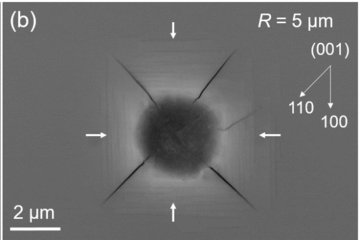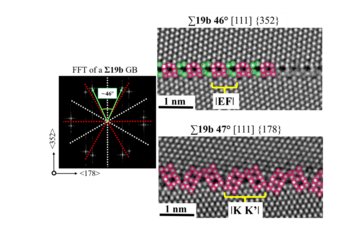All genres
21.
Journal Article
Oxygen evolution activity and stability of iridium in acidic media. Part 2. – Electrochemically Grown Hydrous Iridium Oxide. Journal of Electroanalytical Chemistry 774, pp. 102 - 110 (2016)
22.
Journal Article
Activity and stability of electrochemically and thermally treated iridium for the oxygen evolution reaction. Journal of the Electrochemical Society 163 (11), pp. F3132 - F3138 (2016)
23.
Journal Article
Oxygen evolution activity and stability of iridium in acidic media. Part 1. – Metallic iridium. Journal of Electroanalytical Chemistry 773, pp. 69 - 78 (2016)
24.
Journal Article
On the origin of the improved ruthenium stability in RuO2 - IrO2 mixed oxides. Journal of the Electrochemical Society 163 (11), pp. F3099 - F3104 (2016)
25.
Journal Article
Oxygen and hydrogen evolution reactions on Ru, RuO2, Ir, and IrO2 thin film electrodes in acidic and alkaline electrolytes: A comparative study on activity and stability. Catalysis Today 262, pp. 170 - 180 (2016)
26.
Journal Article
Platinum recycling going green via induced surface potential alteration enabling fast and efficient dissolution. Nature Communications 7, 13164 (2016)
27.
Journal Article
On the need of improved Accelerated Degradation Protocols (ADPs): Examination of platinum dissolution and carbon corrosion in half-cell tests. Journal of the Electrochemical Society 163 (14), pp. F1510 - F1514 (2016)
28.
Journal Article
Dissolution of Platinum in Presence of Chloride Traces. Electrochimica Acta 179, pp. 24 - 31 (2015)
29.
Journal Article
Dissolution of Platinum in the Operational Range of Fuel Cells. ChemElectroChem 2 (10), pp. 1471 - 1478 (2015)
30.
Meeting Abstract
Stability of binary metallic ceramics in the HER reaction - feasible HER electrocatalysts in acidic medium? In Abstracts of Papers of the American Chemical Society, 254, 350. 254th National Meeting and Exposition of the American-Chemical-Society
(ACS) on Chemistry's Impact on the Global Economy, Washington, DC, August 20, 2017 - August 24, 2017. (2017)
31.
Talk
Platinum electrochemial dissolution and its consequences for platinum electrocatalysis. 227th ECS Meeting, Chicago, IL, USA (2015)
32.
Talk
Combinatorial study of fundamental electrocatalyst performance - The scanning flow cell coupled to online analytics. 227th ECS Meeting, Chicago, IL, USA (2015)
33.
Poster
Platinum dissolution in presence of chlorides. 3rd Ertl Symposium on Surface Analysis and Dynamics
, Berlin, Germany (2014)
34.
Thesis - PhD
Stability investigations of iridium-based catalysts towards acidic water splitting. Dissertation, Ruhr-Universität Bochum, Bochum, Germany (2017)











